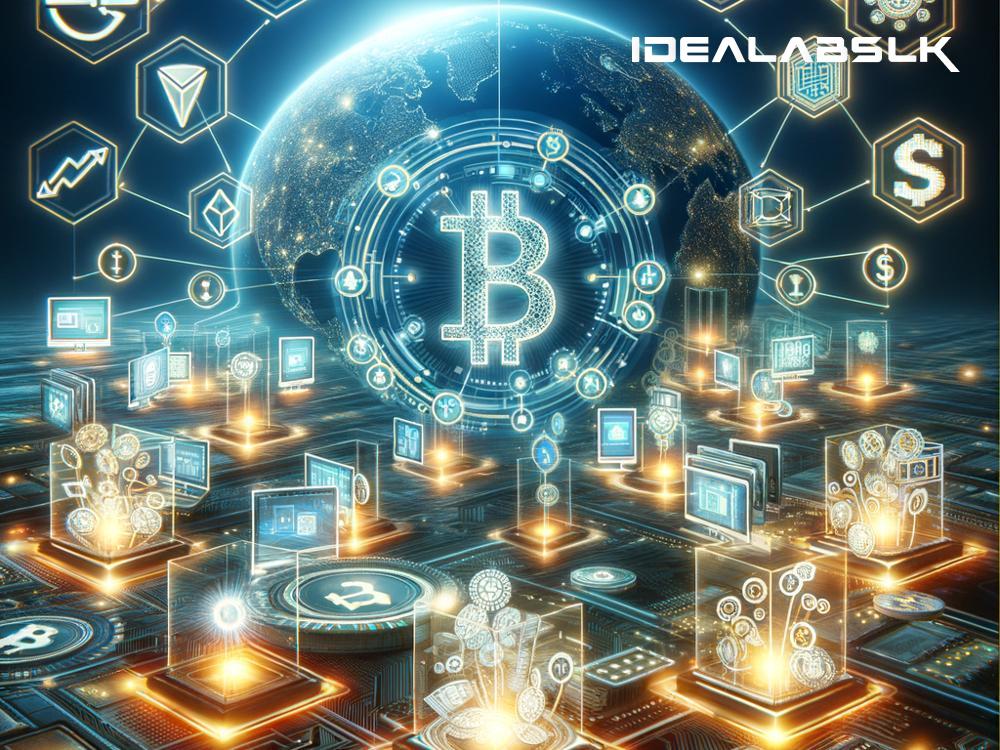How Blockchain Will Change the Game (Literally!) by 2025
In the ever-evolving landscape of gaming, the integration of blockchain technology is poised to shake things up by 2025. For those who might find the term 'blockchain' a bit techy, think of it as a super-secure digital ledger that keeps track of transactions. It's the secret sauce behind cryptocurrencies like Bitcoin. But beyond just currency, blockchain's influence is set to revolutionize in-game transactions and virtual economies, making them more secure, transparent, and immersive for gamers around the world.
Secure and Transparent Transactions
Imagine playing your favorite online game and purchasing a rare in-game item with absolute confidence that your transaction is secure and that the item cannot be duplicated or stolen. That's the promise of blockchain. Every transaction is recorded and verified across a network of computers, making fraud and hacks a thing of the past.
By 2025, this level of security will be the standard in gaming. You'll be able to buy, sell, or trade virtual items knowing that blockchain's transparency ensures fairness. Each item will have a unique history, visible to everyone, which could increase its value and desirability based on its past. This kind of trust is a game-changer (pun intended) for virtual economies.
Real Value in Virtual Economies
Currently, spending money in games can feel a bit like a one-way transaction. Sure, you get an item or a power-up, but outside the game, it's worthless. Blockchain is set to blur the lines between virtual and real-world value. By establishing secure ownership of in-game assets, these items can be traded not just within the game but outside of it too.
In 2025, expect to see platforms where gamers can sell their rare sword or spaceship to the highest bidder for real-world currency, thanks to blockchain. This added layer of economic opportunity could turn virtual items into genuine investments.
The Rise of Decentralized Gaming Worlds
Blockchain enables the creation of decentralized games, where the game's assets and rules live on the blockchain rather than on a single server controlled by the game's developers. This could lead to more democratic gaming experiences where players have a say in the game's direction.
Imagine a game world that evolves based on players' decisions, where updates are voted on by the community. By 2025, we could see games that are more than just pastimes; they're self-governing communities thriving on blockchain technology.
The Impact on Game Developers and Companies
It's not just players who'll feel the impact; game developers and companies will too. With blockchain, indie developers will have the tools to create secure, transparent games without needing the infrastructure of large gaming companies. This could lead to a surge in innovative, player-focused games flooding the market.
Moreover, blockchain's inherent security and the potential for increased revenue through real-world value transactions could attract more investment into the gaming industry. By 2025, we're likely to see traditional gaming companies adopting blockchain to stay competitive.
Potential Challenges
Of course, with any technological advancement, there are hurdles to overcome. The environmental impact of running blockchain networks, primarily due to energy consumption, is a concern. However, with the industry moving towards more energy-efficient blockchain solutions, this issue is being addressed.
There's also the question of accessibility. Ensuring that players from all walks of life can participate in these new virtual economies will be crucial. As we move closer to 2025, finding ways to make blockchain gaming inclusive and fair will be an ongoing project for developers and the community.
The Exciting Horizon
As we look towards 2025, the fusion of gaming and blockchain technology promises to deliver a more secure, transparent, and immersive gaming experience. The implications on in-game transactions and virtual economies are profound, offering players real value and new opportunities. For developers, blockchain paves the way for innovation and democratization in game creation.
In simple English, blockchain is set to make the virtual worlds of gaming more like real life – with all the opportunities, security, and community that comes with it. So, strap in; the future of gaming is on the blockchain, and it's going to be a wild ride.
By embracing these changes, gamers and developers alike stand at the threshold of a new era. The year 2025 could well mark the beginning of a gaming revolution, powered by blockchain technology.

